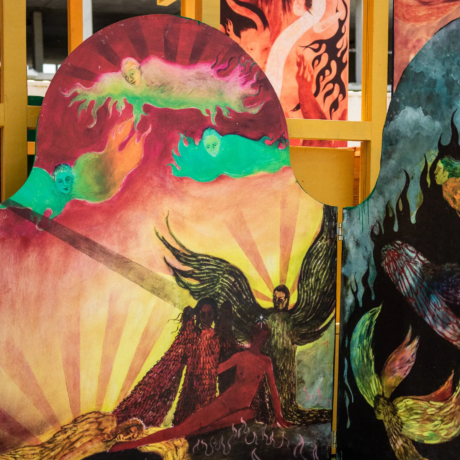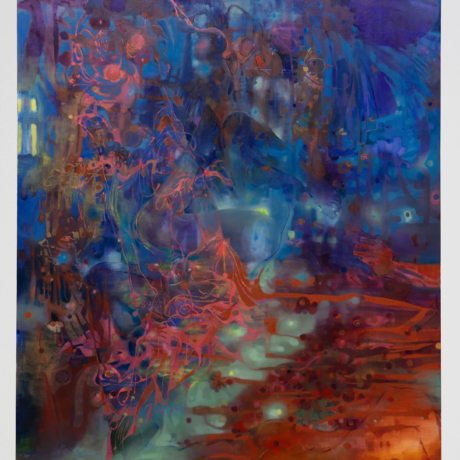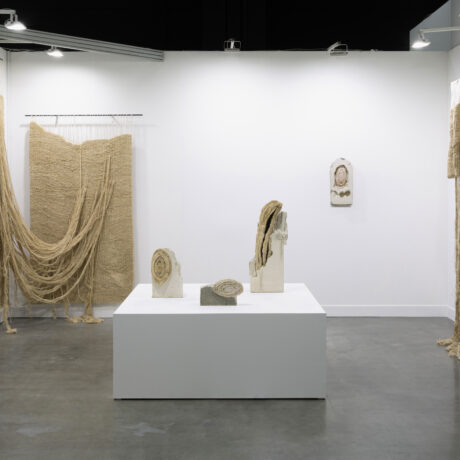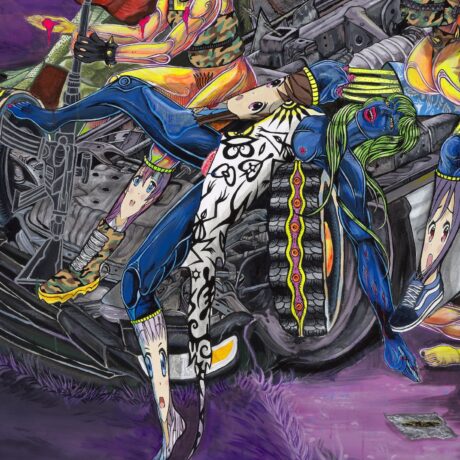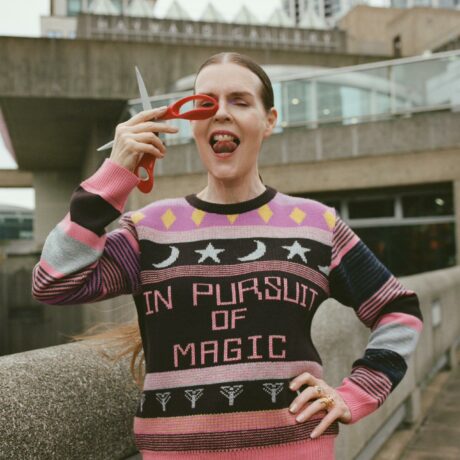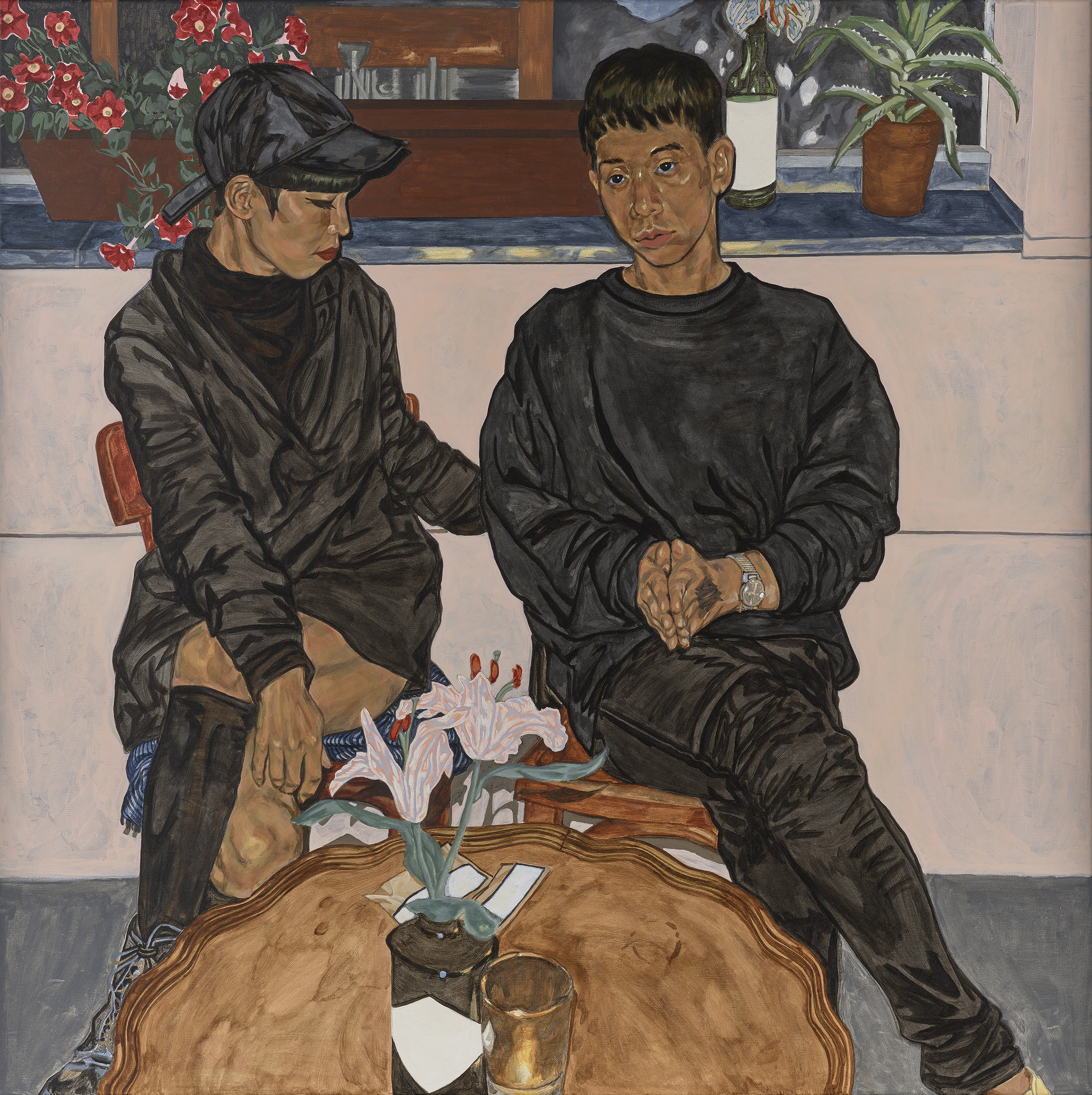
It is hard to imagine that anything new can be done with the portrait painting genre. As one of the oldest forms of art-making, it long existed as the sole means of recording someone’s appearance, as well as imbuing the subject with a variety of symbolic allusions to wealth, power and political alliances.
Even now, there is something intimate about the term—perhaps even rigid or confining—which lets us imagine an array of carefully composed sittings, where a very specific image is constructed. More often than not, a portrait is also synonymous with either a solitary sitter or a family group, as if blood ties and matrimony are the only things that truly bind human beings together.
“I do believe that our circle of friends is what makes us who we are”
Jiab Prachakul’s Night Talk represents the exact opposite of these ideas. Her painting, which recently won the BP Portrait Award 2020, depicts two friends in a candid moment at a Berlin bar. The composition is more akin to something you might find in the annals of Instagram or the portfolio of a budding “street photographer”, as opposed to being immortalized in oils.
There is no posturing or posing, not even any direct eye contact. Instead, Prachakul encapsulates a more contemporary notion of what family can be. “I do believe that our circle of friends is what makes us who we are,” she explains. “Jeonga [Choi] and Makoto [Sakamoto] are like family to me. We are all outsiders, Asian artists living abroad, and their deep friendship has offered me a ground on which I can stand and embrace my own identity.”
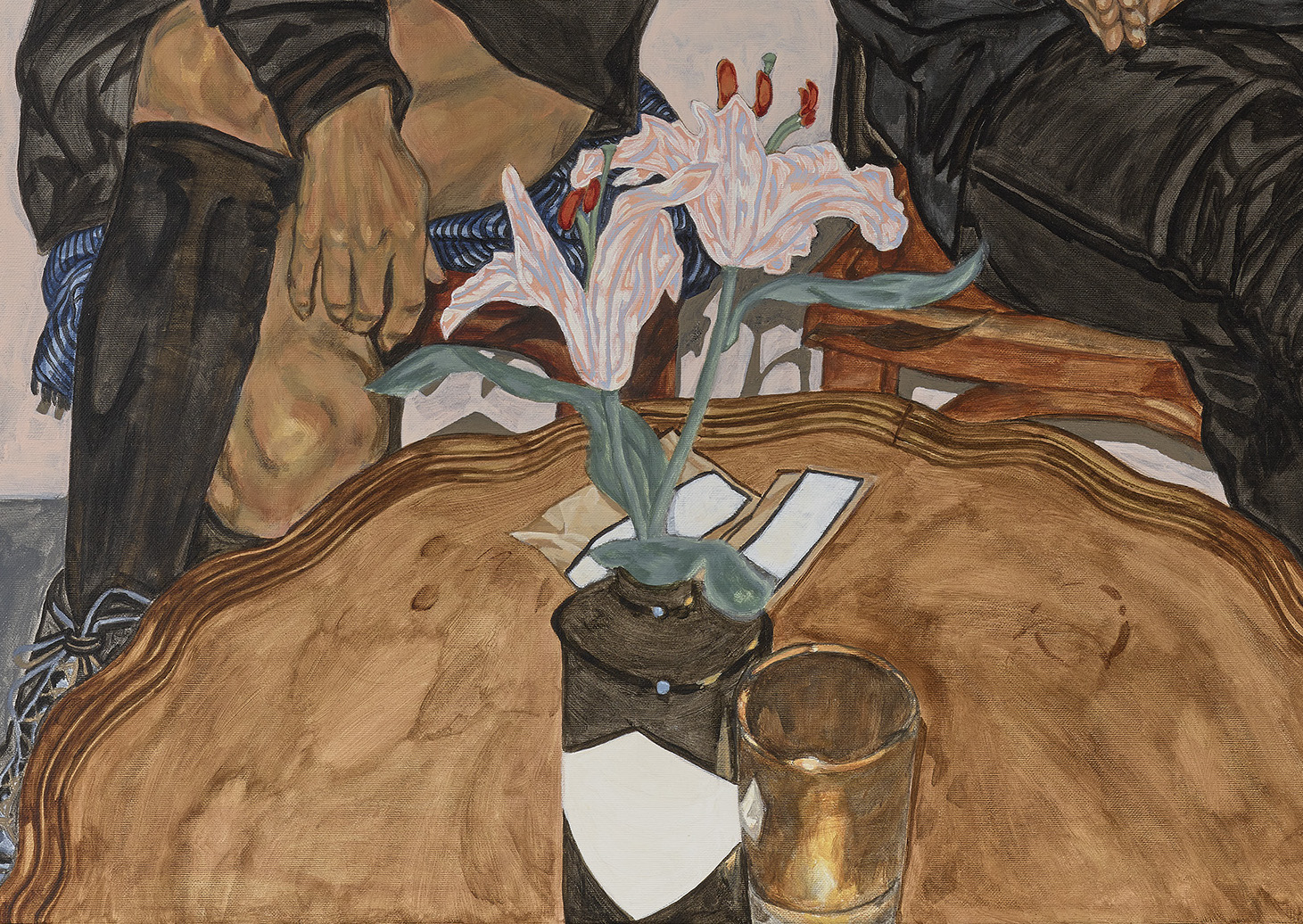
Prachakul not only conveys the sense of ease and comfort that we all feel when surrounded by our closest friends, but also fills her canvas with signifiers of contemporary culture. There’s the Hendrick’s gin bottle being used as a vase on top of mismatched second-hand furniture, as well as half-opened tobacco packets and globally recognized norm-core fashion. All of these elements will seem commonplace to members of an international, creative and young(ish) community who continue to root their relationships within the context of their peers, as opposed to the conventions of marriage, job stability and children.
“I can’t help but feel that the slightly flattened perspective is reminiscent of our current existence behind a screen”
There is something so familiar yet ultimately unusual about this composition. Prachakul’s foreshortening positions us beyond the eyeline of her friends, as if we have just stood up, or are perhaps returned from grabbing another round of drinks. I can’t help but feel that the slightly flattened perspective is reminiscent of our current existence behind a screen, where drinks and group gatherings are compressed and distorted in pixels, as we continue to isolate. Of course, Prachakul couldn’t have been referencing our current situation when she painted Night Talk, but it is prophetic that she chose to elevate an everyday scene to something of such intimacy and value. It is a moment we all recognize, as we shuffle to return to our group and convene with friends in a busy bar, and one that is sorely missing during this time apart.
